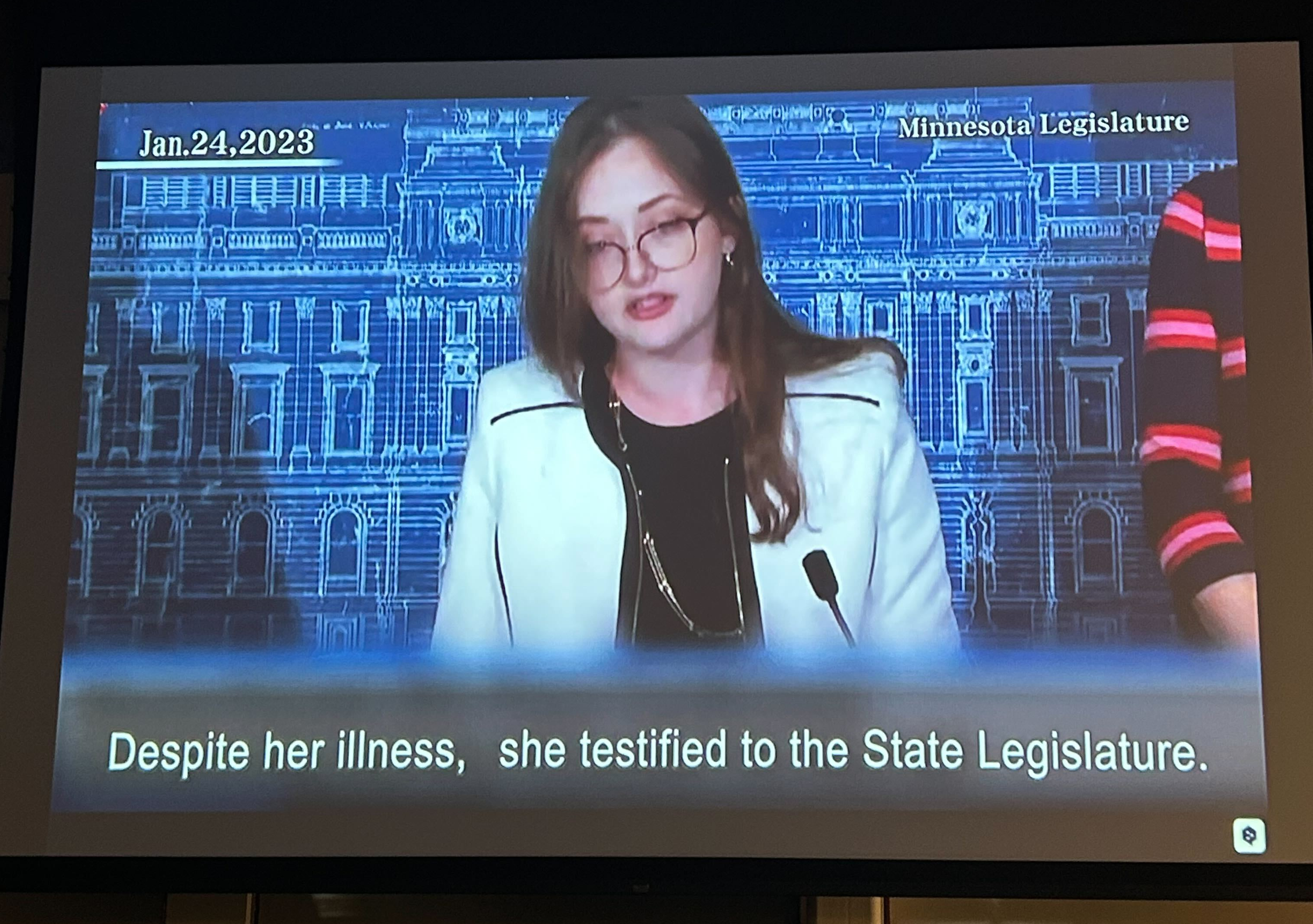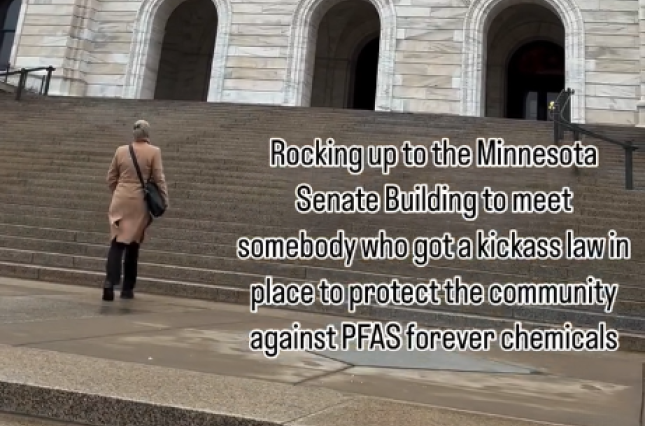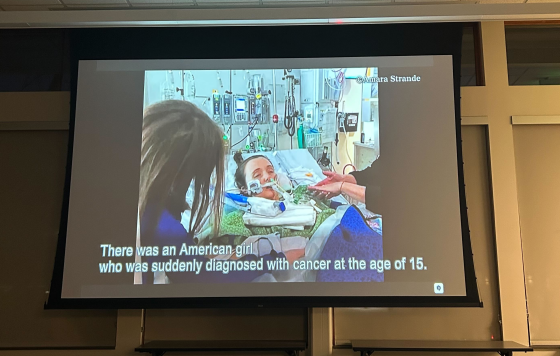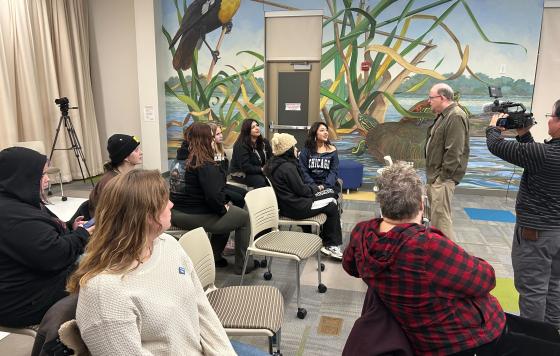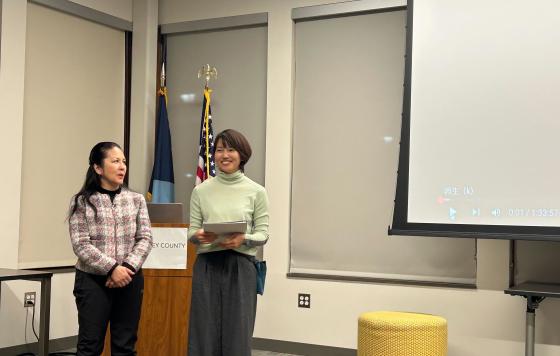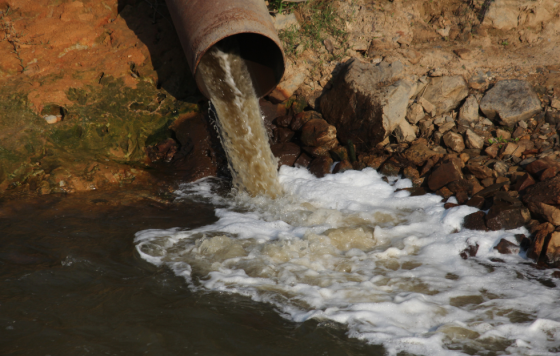A few days ago, a documentary film crew from Japan visited our community. They hosted a free screening of their made-for-television film, Water is Treasure – Fighting PFAS Contamination! Fight for Life. The film chronicles how mothers in Japan are leading efforts to raise awareness about PFAS contamination in their drinking water, which they attribute to U.S. military bases and the use of PFAS-based firefighting foam.
The documentary also weaves in stories from the United States, exploring contamination in Florida and New Hampshire. Amara’s story was shared as well, bringing her fight against PFAS to a global audience.
Seeing our work in Minnesota through an international lens was a jarring experience. Watching Amara’s voice and her image—lying in a hospital bed, hair gone, and then testifying courageously at the legislature—felt strangely new, as if I were hearing her story for the first time.
Michael and Nora Strande were present for the screening. Although I consider them dear friends, I found myself learning even more about their journey. Despite having lived through the experience of passing Amara’s Law alongside them, filmmaker Taira Izumi captured the story with a depth and rawness I hadn’t fully appreciated before.
Perhaps this impact hit me because, at the time, I was focused solely on fighting for justice for a community losing loved ones and seeing their futures forever altered. While the bill was being considered in 2023 for passage into law, my energy was directed at fighting off harmful amendments and standing firm against intimidating chemical industry lobbyists. It’s only now, with some distance, that I feel I’ve truly had the chance to process what we accomplished.
Since Amara’s Law passed, my focus has shifted to protecting the legislation and helping others enact similar laws in their states. Until now, I hadn’t allowed myself an authentic moment to reflect. On January 13th, during the hour-and-a-half documentary, I was forced to reflect. This experience wasn’t like watching Dark Waters, where I view the story as an advocate or lobbyist and focus on the mechanics of the discovery of the toxic nature of PFAS. This was watching my friends and my community tell a story I already knew, yet seeing it anew.
At the end of the film, I remarked to Taira Izumi and her interpreter, Rachel Clark, how deeply it struck me that this fight is being led by mothers and women around the world. The Momma Bears podcast shared how our instincts to protect our children propelled us into action. The same is happening in Japan. One woman, Yumi Nakasone, became so concerned about PFAS contamination in Okinawa’s water that she ran for a seat on the Okinawa Prefecture—and won! A group of mothers banded together to support her campaign, and their efforts prevailed.
I emphasized to both Taira Izumi and Rachel Clark how vital it is to forge international relationships—to share tactics, build solidarity, and create bonds that chemical industry money can’t break. I asked that we be connected to anyone we are able to help in Japan.
Before the viewing, I was interviewed for a second documentary by Taira Izumi that will premiere in Japanese theaters this summer. They asked me about Amara’s Law, the challenges we faced and continue to face, and what advice I have for the people of Japan. My response was clear: corporate greed and laziness are to blame. Safer alternatives to PFAS exist. Billion-dollar corporations need to invest less in killing legislation and more in transitioning to safer options.
To the Japanese people, my advice was simple: stick together. Support each other. Share what works and what doesn’t. And never forget that we are one global community, all relying on clean, safe drinking water.
I’m eager to see how Amara’s story is told in this upcoming documentary. I hope it inspires people worldwide to take action while sending a strong message to polluters: we are organized, passionate, and educated. No amount of money can defeat the fierce fight within us.
